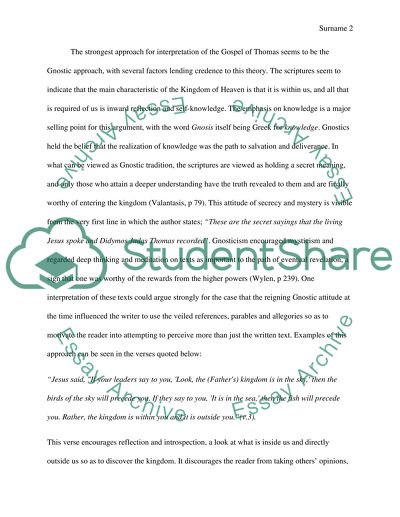Cite this document
(“The nature of the Kingdom which described in the Gospel of Thomas Term Paper”, n.d.)
Retrieved from https://studentshare.org/religion-and-theology/1441792-the-nature-of-the-kingdom-which-described-in-the
Retrieved from https://studentshare.org/religion-and-theology/1441792-the-nature-of-the-kingdom-which-described-in-the
(The Nature of the Kingdom Which Described in the Gospel of Thomas Term Paper)
https://studentshare.org/religion-and-theology/1441792-the-nature-of-the-kingdom-which-described-in-the.
https://studentshare.org/religion-and-theology/1441792-the-nature-of-the-kingdom-which-described-in-the.
“The Nature of the Kingdom Which Described in the Gospel of Thomas Term Paper”, n.d. https://studentshare.org/religion-and-theology/1441792-the-nature-of-the-kingdom-which-described-in-the.


